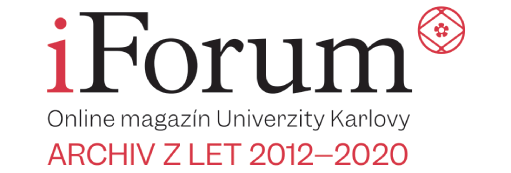2. února 2007
Projev prof. Ueli Aebiho, PhD.
UA’s Honorary Doctorate at Charles University, Prague, Czech Republic, 01-Feb-07
Vaše Magnificence, Spectabiles, vážení hosté, dear friends and colleagues,
As you might expect, it is a special honor and, at the same time a great pleasure to accept this honorary degree from Charles University here in Prague, founded in 1348 and thereby being among the oldest universities in Europe. Foremost and most significantly, this event further strengthens the ties I already have for this wonderful country and its people who over centuries have made important contributions to our steady progress in biology, medicine and beyond.
So you may wonder what my specific ties to Prague in particular and your country more generally really are:
In fact, it all started with music. Already as a child I had the opportunity to witness performances in Switzerland by the Czech Philharmonic Orchestra led by conductors such as Karel Ancerl, Rafael Kubelikand Karel Neumann. Even more so, it was the music written by the Czech composers Jan Dismas Zelenka, Friederich Smetana, Antonin Dvorak and Leos Janacek which caught my attention very early on, in particular, the melancholic touch some of this music has such as, for example, Smetana’s symphonic composition my “Home Country” with “The Moldau” etc.- I could listen to these pieces for hours and hours and play them again and again … Also, through my early interest I developed in Wolfgang Amadeus Mozart I realized the importance Prague had for him: here his music was much more appreciated than in Vienna and Salzburg. For example, it was here that the audience really celebrated his “La noce di Figaro”, and it was not by accident that his “Don Giovanni” premiered in Prague. In fact, his “Clemenza di Tito” he even wrote in Prague in conjunction with Leopold II’s coronation in 1790.
Also, during my high school years I developed a strong interest in Franz Kafka, so I “vigorously inhaled” all his works, in particular, his romans, his many short stories and his “letters to Milena”. Nevertheless, I am not quite sure that I ever got his “full message” – it is without question that he had a very complicated personality: while enormously analytical he often appeared intransparent, at times even controversial …?
Another key event in developing my ties to your country was in 1968 when the son of a friend of my parents-in-law, Karel Novotny, left his home town Ostrawa and came to Switzerland to become the “fourth child” of my parents-in-law, in addition to my future wife, her sister and her brother. Kajo, as we called him, was a fully trained medical doctor while I was an undergraduate in theoretical physics. It was him, assisted by my father-in-law who is a medical doctor too, who awoke my interest in biology. He tried to convince me that I could put my talents much better to work in biology where were waiting all these exciting problems to being cracked rather than “constructing” them as this was typical in theoretical physics. The two succeeded: the day after I got my diploma in theoretical physics, I went back to school and studied in molecular biology.
It was this “transition” in my professional career that forged another important tie to your country. In 1970, while starting to work on my Master’s thesis in the lab of Edward Kellenberger in Basel, I met a graduate student named Ivan Raska, who was winding up his project in Kellenberger’s lab to move on. I was supposed to take up his project and continue, so Ivan became my first mentor to introduce me into virus structure and assembly, electron microscopy and image analysis and processing. Having a theoretical physics background himself, plus being a very tolerant and easy-going person, greatly facilitated our communication and mutual understanding, so I advanced like a “charm” and quickly got on top of matters. Unfortunately for me, after a few months Ivan packed his “suit case” to return to his home town Prague. In this context, I had a lot of arguments with him as to why he wanted to return to Prague, after all, endowed with his superior training, remarkable experience and impressive intellect, doors were open to him throughout Western Europe and North America to pursue a successful scientist career at the cutting edge of biology and medicine. While he was not very explicit in his explanations, it soon became clear to me that for him there was more than just a “successful Western career” at stake, HE WAS COMMITTED TO HIS HOME COUNTRY, he was determined to go there and start from scratch to slowly but definitely put his country onto the map as a significant player in teaching and research in the modern sciences, particularly in the life sciences … All things considered, I think together with a bunch of colleagues he is slowly but definitely succeeding – it has been a long march on an often stony trail …congratulations for this incredible vision, commitment and perseverance, which definitely has role model character for many other ventures.
Last but not least, let me thank my family and, in particular, my wife Janine who played an important role throughout my professional career. It’s only because of their tolerance and appreciation for achievements which go beyond personal success but have a potential to make a more general impact on society, that I got where I am today – I fully appreciate this privilege.
To finish, let me accept this honorary degree from Charles University as a symbol of our common intellectual bonds and goals that unite us all.
While this moment may be temporary, it will definitely stay in my memory forever.
